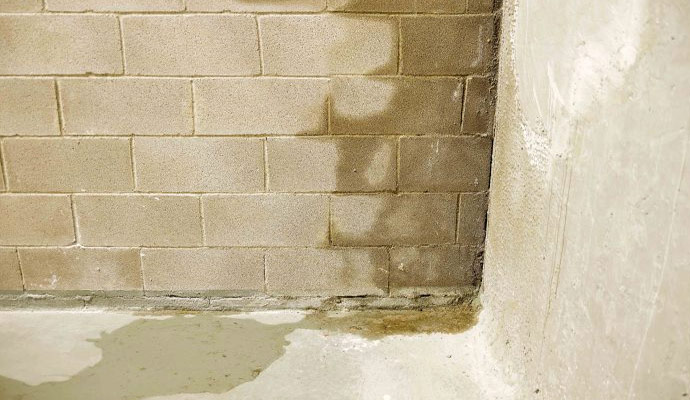Foundation Leak Detection: Is A Slab Leak Critical?

If you’ve heard some confusing news about your homes’ foundation, learn more details. The term “slab leak” describes leaks that develop under the concrete foundation of a building. Water and sewer lines often run below the slab, slab leaks can result if those lines break and release water under your home’s foundation.
Foundation Leak Detection In Baton Rouge
Neglected slab leaks can cause serious problems, including wall and foundation cracks, high water bills, bad odors, and uneven floors. Depending on the extent of the leak, you might even experience a shifting foundation. It’s time to take action and call the foundation leak detection experts at Louisiana Leak Detection.
Slab leaks are common in areas where soils are unstable. As water runs under the house it erodes the soil. This removes support for the slab and puts more strain on it and may cause it to develop cracks from hairline width to an inch or more.
Visible (and Smelly) Signs
A slab leak can do major damage in a relatively short amount of time. Leaks can go years without being detected; changes can be so slow that they go unnoticed. Make the call to the foundation leak detection experts if you notice any of these signs of slab leaks:
- Higher water bills without increased personal usage
- Sounds of running water when no taps are open
- Foundation develops a crack
- Discolored or damp floor coverings
- Warm or damp places on floors
- Bad smell from floors or walls
- Uneven growth in lawn or foundation plants
- Visible shift in soil around the structure
- A hot floor
- The water meter is constantly spinning
- Cracks in the baseboards and walls
- Unusually low water pressure
Plus, look for puddles along the side of your house that have no obvious origin, such as a leaky hose bib, could be coming from cracks in your foundation caused by a slab leak.
Lastly, use your nose. Moisture encourages mold and mildew growth. If you smell or find mold under your carpets, it’s possible the moisture feeding it is coming from a slab leak.
Common Causes
Expansive soil shift Is the primary cause of foundation leaks; the American Society of Civil Engineers says about 25% of all homes in the United States experience damage due to expansive soils. Expansive soils contain minerals that absorb water, which cause them to expand. As the soil moves it bends and weakens plumbing pipes and connections.
A slow slab leak keeps putting water into the ground beneath a home, which creates even more soil expansion that ultimately can lead to substantial damage. The buildup of hydraulic pressure beneath a slab will be released somewhere. Upward pressure eventually finds its way to any weakness or crack in the slab. In some cases, wet spots develop in hardwood floors and carpeting.
Corrosion is another factor. Underground pipes are in direct contact with the soil and the metals it contains. This can lead to galvanic corrosion caused by contact between two different metals. This kind of corrosion can eat a hole in your pipe and cause a leak.
Lastly, abrasion can be a cause. – Water flowing through the pipes causes them to vibrate. If the pipe is next to a hard surface such as concrete, rebar, another pipe or even gravel, the metal will wear away at the point where it rubs against that hard surface. Eventually, a hole forms and the pipe leaks.
Call The Foundation Leak Detection Experts
Modern technology allows for accurate, non-destructive slab leak detection. Most companies equipped to detect and repair slab leaks use sonic equipment such as ground mics and acoustic systems. These pick up on the noise made when a leaky section of pipe vibrates due to water leaving it at a high speed. They may also use sonic location systems to pinpoint non-metal pipes and video pipe inspection equipment. The foundation leak detection experts at Louisiana Leak Detection serves all of Southeast Louisiana, including Baton Rouge.
